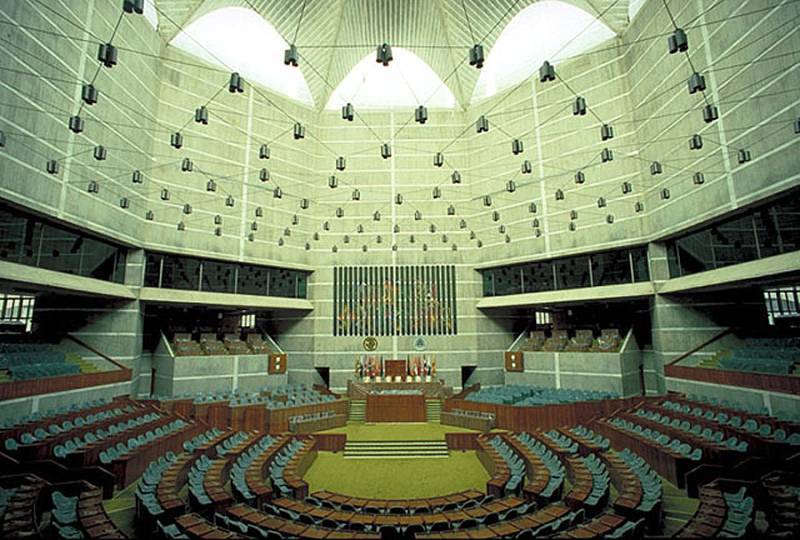Dhaka (Web Desk): President of Bangladesh, Mohammed Shahabuddin has dissolved parliament to make way for the formation of an interim administration.
Based on the decision from a meeting of President Shahabuddin with the heads of the three armed forces, leaders of various political parties, representatives of civil society and leaders of the Students Against Discrimination movement.
The development comes after resignation of Prime Minister Sheik Hasina on Monday who fled the country following a violent crackdown on a student-led uprising.
The movement that toppled Hasina rose out of demonstrations against public sector job quotas for families of veterans of Bangladesh’s 1971 independence war, seen by critics as a means to reserve jobs for allies of the ruling party.
The unrest began last month in the form of protests against civil service job quotas and then escalated into wider calls for Hasina to stand down.
Hasina, 76, had been in power since 2009 but was accused of rigging elections in January and then watched millions of people take to the streets over the past month demanding she step down.
More than 400 people died as security forces sought to quell the unrest, but the protests grew and Hasina finally fled Bangladesh aboard a helicopter on Monday as the military turned against her.
The decision to dissolve parliament was taken following meetings with the heads of defence forces, leaders of political parties, student leaders and some civil society representatives, the presidential statement said.
President Shahabuddin had said earlier that an interim government would hold elections soon after it takes over. Army chief General Wakeruz Zaman was due to meet student leaders to discuss the formation of the government.
Nahid Islam, one of the key organisers of the movement against Hasina, said in a video on Facebook with two other student leaders that parliament should be dissolved by 3pm (9am GMT) on Tuesday and asked “revolutionary students to be ready” if that did not happen.
Meanwhile, Bangladeshi President Mohammed Shahabuddin ordered the release of jailed former premier Khaleda Zia, hours after her arch-rival Sheikh Hasina resigned and fled to India and the military took power.
According to a statement issued by the president’s press team, a meeting led by Shahabuddin had "decided unanimously to free Bangladesh Nationalist Party (BNP) chairperson Begum Khaleda Zia immediately".
Zia's release, also confirmed by the president's office, comes as student leaders have already proposed the name of Nobel Peace laureate Muhammad Yunus as the interim government's chief adviser.
Yunus, 84, and his Grameen Bank won the 2006 Nobel Peace prize for work to lift millions out of poverty by granting tiny loans of under $100 to the rural poor of Bangladesh but he was indicted by a court in June on charges of embezzlement that he denied.
Known as the "banker to the poor" flirted briefly with a political career, attempting to form his own party in 2007. But his ambitions were widely viewed as having sparked the ire of Hasina, who accused him of "sucking blood from the poor".
In 2011, Hasina's government removed him as head of Grameen Bank, saying that at 73, he had stayed past the legal retirement age of 60. Thousands of Bangladeshis formed a human chain to protest his sacking.
In January this year, Yunus was sentenced to six months in prison for violations of labour law. He and 13 others were also indicted by a Bangladesh court in June on charges of embezzlement of 252.2 million taka ($2 million) from the workers' welfare fund of a telecoms company he founded.
Although he was not jailed in either case, Yunus faces more than 100 other cases on graft and other charges. The Nobel laureate denies any involvement and said, during an interview with Reuters, the accusations were "very flimsy, made-up stories".
Yunus is currently in Paris undergoing a minor medical procedure, his spokesperson said, adding he has agreed to the request of students who led the campaign against Hasina to be the chief adviser of the interim government.


